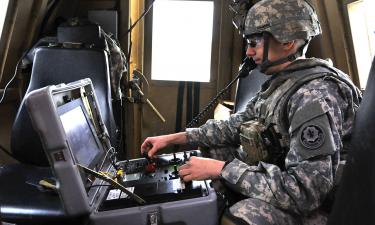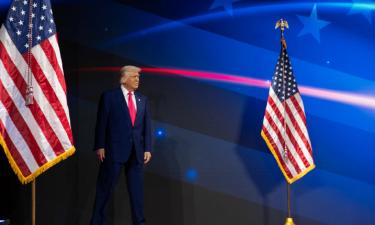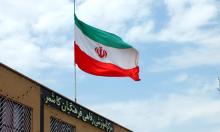In Israel, hopes fall with shuttle
In a nation dogged by conflict, astronaut Col. Ilan Ramon gave Israelis 16 days of pride and respite.
For Israelis, the Columbia's fiery disintegration in the Texas skies didn't just herald the death of their first astronaut; it also extinguished a beacon of hope.
With the Israeli-Palestinian conflict roaring into its third year, a looming regional war, a hobbled economy, and fear of becoming an international pariah, Israelis are starved for reasons to feel good about themselves. For 16 days, Col. Ilan Ramon gave them one.
For many, the death of Ramon along with six American colleagues deepens the bond their country shares with the US.
But even as Prime Minister Ariel Sharon vows to send more astronauts skyward, there is a feeling among Israelis that, Icarus-like, they may have aimed too high and hoped for too much.
"It's a feeling of despair from the situation in which we find ourselves," says Yehuda Bauer, a professor with the Institute of Contemporary Jewry at Jerusalem's Hebrew University. "Everything bad is happening to us: Terrorism ... the economic crisis ... and then the feeling that we've lost so many good people in all the wars we've had over 100 years."
This sense of a history heavy with lives lost is compounded by an awareness that some will take pleasure in Israel's pain. "We will not be surprised to see others dancing on the roofs with joy that this has happened," says Mr. Bauer. "Islamic radicals will see in this the will of God, especially because the village over which the Columbia exploded is called Palestine, Texas."
It wasn't long before media reports proved Bauer right. "We are happy that it broke up," an Iraqi government employee said of the Columbia to foreign news agencies. "God wants to show his might is greater than the Americans."
Israeli officials had lobbied for an Israeli astronaut to go into space on a US shuttle since 1996. When Ramon began training for this mission in 2000, Israel sat up and took notice.
"Being an Israeli is a part of him, it makes us feel like we can do it too," says Daphna More, a Hebrew University student pausing between customers at the cafe where she works. She explains the collective feeling that allows Israelis to identify with each other. "You're never just one person, you're always part of something."
As flags flew at half-staff on a balmy winter day in Jerusalem, the Israeli government extended that sense of shared experience by stressing the ties between their country and the US. "Times such as these strengthen the Israeli and American peoples' common fate, identity and values, and shared vision," a government statement said, in words that echoed those used after Sept. 11.
But some Israelis are a little uncomfortable with the government's stance. "With all due respect to [Ramon] and his family, he's just like anyone else here," says Ms. More. "I feel complete sympathy for him, but I'm bothered by the politics [surrounding his death]. What about the average person who was blown up on the way to work?"
The dangers of daily life here are one reason Israelis hung on Ramon's adventures - they held out the hope of another kind of Israel. "This country, so used to looking down on itself, held its breath at the prospect of a different reality, that of a country that can defy the gravity of its fate," wrote Ari Shavit, a Ha'aretz newspaper columnist.
The youthful son of a Holocaust survivor and father of four, Ramon was breaking new ground. The media avidly reported on all aspects of his adventure, from the email he sent from space to Israel's president to his kosher chicken dinners, the palm-sized Torah scroll that survived a World War II concentration camp, and his religious observance of the Jewish Sabbath.
A gathering at Tel Aviv University marked the launch, which was broadcast live on a giant screen. Students, professors, Air Force officers, and government ministers shouted out the countdown with the Houston control room, cheering at the word "liftoff!"
Ramon, a member of the Israeli military elite, was already a national hero.
A fighter pilot, he was a veteran of the 1973 Yom Kippur War and the 1981 strike against the Osirak nuclear reactor in Iraq.
That strike was a high point for the Air Force. Eight jets flew undetected for hours over Arab lands by grouping in tight formation, sending a radar signal like a large commercial jet.
Ramon's military background was cause for some controversy before the shuttle launch. The Israeli media questioned why a military man and not a scientist had been chosen for this honor. The source of funding for his mission is not entirely clear, giving rise to more grumbling.
And some scientists here argued that while NASA makes it clear that research conducted on the shuttles is not meant to have military applications, Ramon's work on dust storms did apply to navigating and photography from space.
But the complaints were largely lost in the pride Israel felt. In Houston, Israel's ambassador to Washington, Danny Ayalon, described his feelings watching the launch on Jan. 16. "The skies were painted blue and white," he said, in a reference to the colors of the Israeli flag.
Yesterday, Dick Lemon, an American Jew pursuing religious studies here, said the Columbia's disastrous end stilled a small, burgeoning hope. "[Ramon] was really the only light that people were clinging to here," he says. "He was the one clear star."
Nicole Gaouette Christian Science Monitor
The given article is published within the framework of the agreement on cooperation between PRAVDA.Ru and Christian Science Monitor
Subscribe to Pravda.Ru Telegram channel, Facebook, RSS!




